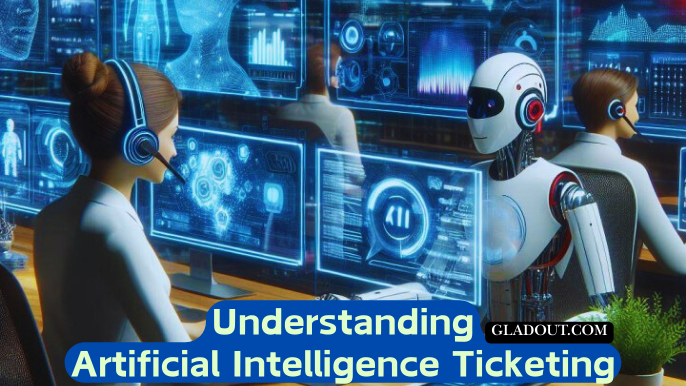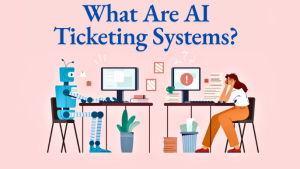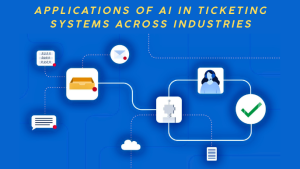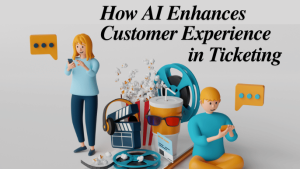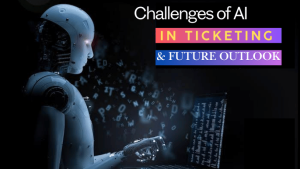Artificial Intelligence Tickets
Introduction: The Rise of Artificial Intelligence in Ticketing
As artificial intelligence (AI) continues to reshape industries, ticketing systems have become one of the latest areas to benefit from this transformation. Leveraging machine learning, Natural Language Processing (NLP), and predictive analytics, AI-powered ticketing systems are now essential for companies seeking efficient, responsive, personalized customer service.
1. What Are AI Ticketing Systems?
An AI ticketing system uses artificial intelligence to automate and optimize the handling, sorting, and response to customer service requests. By integrating machine learning models, these systems can analyze incoming tickets, prioritize them based on urgency, and even suggest solutions—all without human intervention.
This technology is especially valuable for businesses with high volumes of customer interactions, as it helps streamline operations, saving time and resources.
Key Points:
- AI helps categorize and prioritize tickets for faster responses.
- Machine learning algorithms analyze patterns to suggest solutions.
- Automated ticketing improves both efficiency and accuracy.
Read More: MacBook Pro M3 Review in 2024
2. Key Benefits of Artificial Intelligence in Ticketing
AI ticketing systems are more than just a tool; they bring substantial benefits that impact the bottom line and customer satisfaction.
a. Reduced Response Time With AI ticket routing, customer queries can be directed to the appropriate team member within seconds, reducing wait times and improving overall customer satisfaction.
b. Enhanced Customer Support AI ticketing systems utilize NLP to understand customer language and intent, enabling more accurate ticket categorization and response. NLP-powered AI can determine the sentiment of a customer’s message, allowing it to assess urgency and prioritize cases.
c. Cost Savings and Efficiency Automating repetitive tasks, such as assigning and sorting tickets, frees up human agents to focus on complex cases. Over time, this AI-driven ticket processing leads to significant cost savings and improved resource allocation.
3. Applications of AI in Ticketing Systems Across Industries
AI in ticketing systems isn’t limited to customer service—its applications extend across various industries.
a. Transportation and Events
In sectors like transportation and events, AI-based ticketing solutions allow for digital ticketing, facial recognition for entry, and real-time updates. For instance, predictive analytics in ticketing can forecast high-demand events, helping companies manage crowd control effectively.
b. IT Helpdesk and Tech Support
AI ticketing is widely used in IT helpdesks where it can automatically troubleshoot common issues. AI-driven smart ticketing systems in tech support can suggest knowledge base articles or solutions, guiding users to a resolution without needing human support.
c. Healthcare and Public Sector
AI-powered solutions are utilized in the healthcare industry to handle follow-up reminders, appointment scheduling, and patient inquiries. In the meantime, AI ticketing systems are used by public sector organizations to more effectively manage citizen requests and complaints.
Read More: What is Generative AI?
4. How AI Enhances Customer Experience in Ticketing
By using conversational AI and virtual assistants, companies can provide 24/7 customer support, enhancing the customer journey from start to finish.
AI chatbots in ticketing are trained on past tickets and frequently asked questions, enabling them to answer common inquiries instantly. This technology offers customers self-service options and eliminates the need to wait for a live agent.
a. Sentiment Analysis and Personalized Interactions AI can gauge the mood of a customer’s message through sentiment analysis, helping tailor responses accordingly. For instance, an angry or frustrated customer might be directed to a senior support agent for better handling.
b. Real-Time Updates and Tracking With AI, customers can receive real-time updates about their ticket status, which improves transparency and trust. This feature is especially valuable in industries like travel and logistics, where keeping customers informed is essential.
5. Challenges of AI in Ticketing and Future Outlook
While AI has revolutionized ticketing, challenges such as data privacy, model training, and handling nuanced queries still exist. Companies need to ensure data compliance and periodically update AI models to maintain accuracy.
a. Data Privacy and Security Handling sensitive customer data requires robust security measures. AI systems must comply with regulations such as GDPR to protect user privacy.
b. Continuous Learning and Model Improvement Machine learning models need continuous updates to remain effective, especially as they handle evolving language patterns and emerging issues.
Future Prospects: As AI technology advances, AI ticketing systems will become increasingly sophisticated, offering even more tailored support, better analytics, and improved decision-making capabilities for businesses.
Read More: Top 8 Artificial Intelligence Image Resizer
Conclusion: Embracing AI for an Efficient, Customer-Centric Ticketing Experience
Artificial intelligence in ticketing is more than just a trend; it’s a vital tool for modern customer service. By embracing AI ticketing solutions, companies can provide faster, more personalized service, ultimately improving customer satisfaction and loyalty.
For businesses looking to optimize their ticketing processes, AI-based ticketing systems represent a future-ready solution that aligns with the needs of today’s digital-first consumers.

